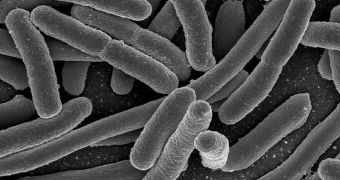It now looks like bacteria have a natural ability to somehow "foresee" the future, in relation to their habitat and living conditions. Experiments on cultures of Escherichia coli (E. coli) showed that no matter the influences they are subjected to, bacteria still manage to adapt over short periods of time. In fact, scientists analyzing them say that it takes less than 100 generations of E. coli to adapt to even the most massive changes in outside temperature and oxygen levels.
Researchers at Princeton University tested several bacterial cultures under extreme conditions, and their discoveries were simply amazing. When they turned the heat up on the bacteria, immediate responses were elaborated as defense mechanisms, forcing significant changes on a cellular level. For instance, at an increase from 77 to 98.6 degrees Fahrenheit (25 to 37 degrees Celsius), E. coli deactivated its aerobic respiration mechanisms and switched to the anaerobic ones. This means it moved from breathing oxygen to breathing carbon, sulfur or any other chemical it could use to help preserve itself.
The bacteria also prove extremely resilient to events unlikely to occur in nature, such as an increase in temperature, followed by an increase in oxygen levels. Scientists say that being able to "think ahead" has helped bacteria over millions of years of evolution, when the conditions on Earth were not nearly as stable as they are now. Natural selection also taught these unicellular organisms the meaning of speed in adaptation and the effects the lack of such speed could have.
In the tests done at Princeton University by Ilias Tagkopoulos, Saeed Tavazoie and Yir-Chung Liu, bacteria cultures managed to evolve, over a few dozen generations, to a point where they could withstand all challenges posed to them by the researchers. This incredible resistance accounts for their ability to survive in the harshest conditions on the planet today.

 14 DAY TRIAL //
14 DAY TRIAL //